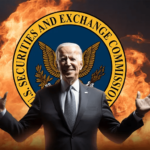Of all the different scenarios in Venezuela’s election on Sunday, we witnessed the most likely: Nicolás Maduro was declared the winner of the vote by the country’s electoral authority controlled by close allies of the authoritarian president.
Shortly after midnight in Caracas, the National Electoral Council said Maduro had won 51% of the vote compared to 44% for rival Edmundo González, although opinion polls showed the opposition candidate clearly ahead by a double margin.
The electoral body did not produce individual counts from each polling station to support the results after it said it had received a “terrorist” attack on its transmission system. How inconvenient! Also called the result “irreversible” even though 20% of the votes are still uncounted and the difference between the two candidates is only seven percentage points. Equally suspicious, it took more than six hours to publish the count; you would think that the results so suddenly agreed to the government would have been published very quickly to squash any malign speculation.
The opposition denounced the result: a farce that only crowned a dirty process from the beginning, with the main leader María Corina Machado saying that based on 40% of the ballots that had been tabulated, Gonzalez won 70% of the vote.
With both sides claiming victory, the short-term outlook increases political instability and uncertainty. Latin America and the countries that want to see a democratic and prosperous Venezuela must participate quickly to help find a path that respects the will of millions of citizens who braved the obstacles and violence to vote.
Maduro will not accept defeat, and the idea that he will quietly leave the presidential palace is always a wishful thinking. At the same time, his strategy cannot be confused with power or invincibility: It is a bet consistent with the hegemonic behavior of Chavismo, the socialist movement that has ruled Venezuela for more than 25 years, and which still contains some risks for the regime.
For starters, the electoral body must show the numbers that prove the results (the CNE promises to do so “in the coming hours”). This is key because currently only Venezuela’s most powerful allies (ie, Cuba, Nicaragua, Bolivia, Iran, Russia and China) are congratulating Maduro on his “victory”.
And if it is true that the opposition gives a certificate of 40% of the votes, it should be enough to prove that the number does not increase. As the President of Chile, Gabriel Boric rightly said, the results are “hard to believe,” adding that his country will not recognize results that cannot be verified. The US and the European Union expressed similar concerns.
While the silence of Brazilian President Luiz Inácio Lula da Silva and his Colombian counterpart Gustavo Petro on Sunday night could be interpreted as a tactical concession, it could also be a sign of backdoor diplomatic negotiations. (Colombia’s foreign minister, Luis Gilberto Murillo, has called for swift independent verification and audits.) Petro (and Mexico’s Andrés Manuel López Obrador, another leftist leader in the region) are unlikely to come out violently against Maduro, but Lula vented his frustration . with the Venezuelan leader the day before the vote. And foreign affairs adviser Celso Amorim was in Caracas to vote. Brazil’s position will carry significant weight in this drama, where the legitimacy of the already corrupt regime is gradually diminishing.
Then we have the Venezuelan armed forces, which now have to make their own calculations. Machado appealed to the military once again on Sunday night, saying he hopes to implement the popular vote. Although he said the movement was peaceful, the opposition’s capacity to mobilize the protesters when necessary should not be denied.
In general, these are treacherous waters for Chavismo that could lead to new sanctions – both personally and at the government level – more divisions and internal disagreements that could disrupt Maduro’s artificial economic stability. It is not for nothing that the bling-encrusted leader called for a “new consensus” in the country in his postelection comments. And if this bus driver’s 11 years in power as a dictator has taught us anything, it’s not to underestimate his capacity for survival. The next step in this story will depend on how the government and the opposition play their new hand.
For those still doubting the result, remember this is not your general election before Sunday’s blunder. The regime went to extremes to balance the vote, banning candidates (Machado, in particular), allowing only a small margin of the Venezuelan diaspora to vote abroad, preventing the presence of observers and even banning entry. regional leaders seek to assess the vote in the country. That is enough to be considered an unfair election in any democracy.
The spectacle of millions of brave and hopeful Venezuelans at home and abroad trying to peacefully change their country’s destiny should be a source of global inspiration. In this election year, it is imperative to mobilize democracy to summon the collective wisdom and resolve necessary to defend the primacy of the ballot over the truncheon and the bullet. Venezuela’s democratic neighbors must stand up, and the rest of the free world must support them.




